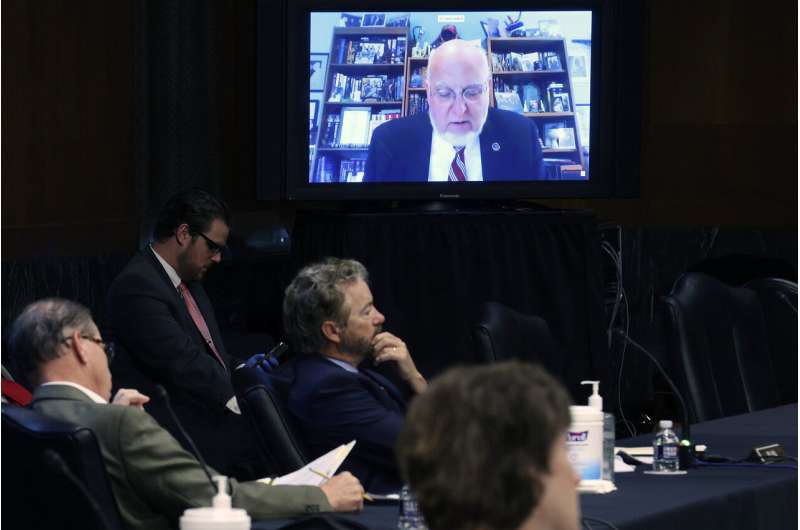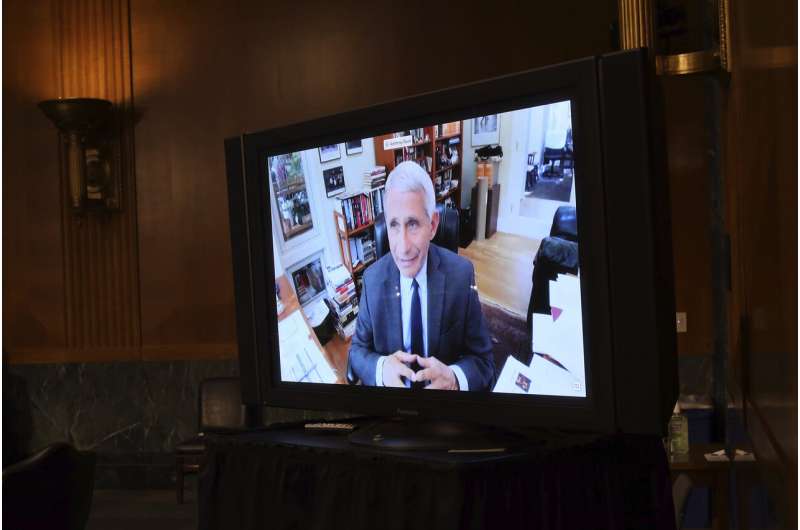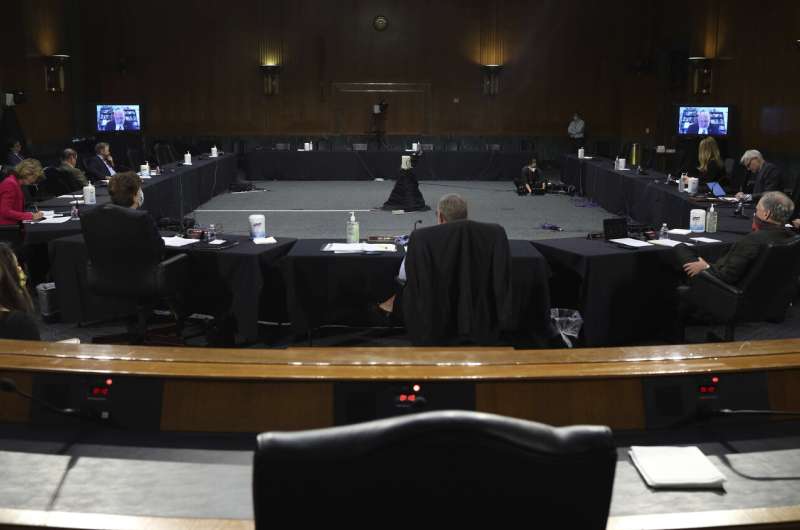CDC guidance more restrictive than White House

Advice from the top U.S. disease control experts on how to safely reopen businesses and institutions during the coronavirus pandemic was more detailed and restrictive than the plan released by the White House last month.
The guidance, which was shelved by Trump administration officials, also offered recommendations to help communities decide when to shut facilities down again during future flareups of COVID-19.
The Associated Press obtained a shelved by the administration April 30, according to internal government emails and CDC sources who were granted anonymity because they were not cleared to speak to the press. After The AP reported about the burying of the guidance last week, the White House asked the CDC to revive parts of it, which were sent back for approval, according to emails and interviews.
On Tuesday, CDC Director Robert Redfield testified before a U.S. Senate committee that the recommendations would be released "soon." He provided no further details. Internal government emails show that Redfield had repeatedly sought White House approval for CDC's guidance, starting as early as April 10.
Both the CDC document and the White House's published plan recommend communities reopen in phases as local cases of coronavirus subside.
One of many differences, however, is advice for when communities should allow for the resumption of nonessential travel.

The shelved CDC guide advises communities to avoid all nonessential travel in phases of reopening until the last one, when cases are at the lowest levels. Even then, the CDC is cautious and advises only a "consideration" of the resumption of nonessential travel after 42 continuous days of declining cases of COVID-19.
The White House plan, by contrast, recommends that communities "minimize" travel in Phase 1, and that in Phase 2, after 28 consecutive days of decline, "Non-essential travel can resume."
As of Tuesday, CDC's web page on travel guidance during the pandemic still linked to the White House plan. The stricter guidance is not there.
Another stark difference in the final White House plan and that designed by epidemiologists at the CDC is the latter's acknowledgment that COVID-19 cases will likely surge after states reopen, and that local governments need to continuously monitor their communities closely.
The White House's final reopening plan lacks guidance on how local communities can track information beyond positive cases. But the CDC document offers thoughts on how to plan for where case increases might occur more quickly, using demographic information. The CDC says local leaders could take special notice of the number of households with limited English literacy in an area, how many people live in poverty or have no health insurance coverage, and even what it calls areas of "civic strain" caused by the virus, such as places where many workers were sick or lost wages due to shutdowns.
The White House plan offers few such specifics and instead provides broad guidance, such as "Protect the health and safety of workers in critical industries," and advises states to "protect the most vulnerable" by developing "appropriate policies."

On Wednesday, the Senate's top Democrat called for the immediate release of the CDC's guidance. "America needs and must have the candid guidance of our best scientists unfiltered, unedited, uncensored by president Trump or his political minions. The CDC report on reopening the country is an important piece of that guidance," said Sen. Charles Schumer of New York.
Schumer's resolution was quickly defeated when Republican Indiana Sen. Mike Braun blocked it, saying CDC's guide would bog down the economy.
Dr. Anthony Fauci, the nation's top infectious disease expert, warned on Tuesday that lifting stay-at-home orders too quickly could lead to serious consequences, both in deaths and economic hardship. President Donald Trump, meanwhile, has continued to push states to act to right a free-falling economy.
The CDC's guidelines stress the dangers of states and regions going it alone in such perilous times. The agency advises a national approach, rather than a patchwork, because policies in one state will in time affect others.
"Travel patterns within and between jurisdictions will impact efforts to reduce community transmission too. Coordination across state and local jurisdictions is critical—especially between jurisdictions with different mitigation needs," the report states.
© 2020 The Associated Press. All rights reserved. This material may not be published, broadcast, rewritten or redistributed without permission.




















